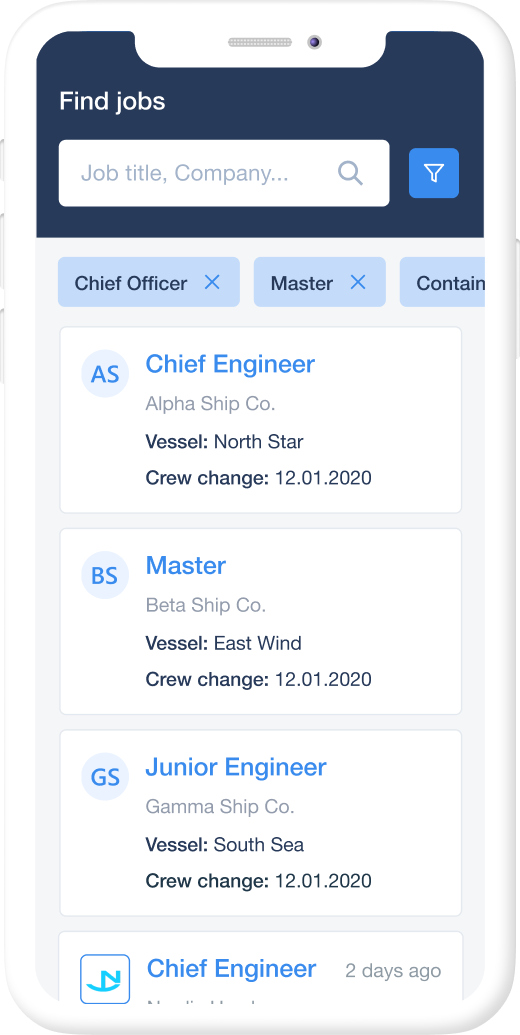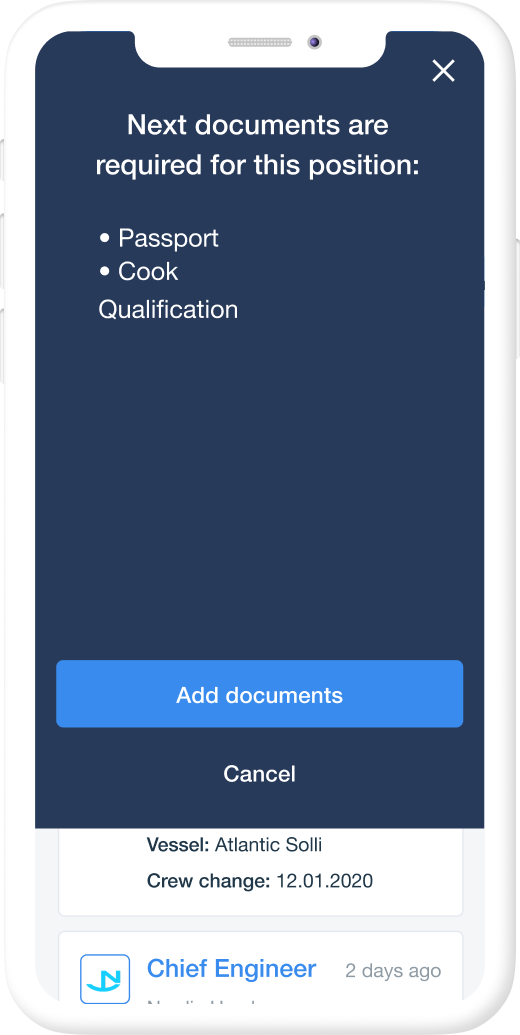It’s a fact of life that working at sea means you sometimes miss out on special days or holidays, such as birthdays, anniversaries and religious festivals. And while you can join in with your family’s celebrations from afar or by email, what happens when the unthinkable happens and someone passes away while you’re at sea?
Now, there’s never going to be an ideal or one-size-fits-all solution or coping mechanism for coping with the death of a loved one while you’re working away in a job at sea, but we hope the following post might give you some comfort if you’re currently experiencing a loss.
What should you do if you get bad news when you’re away working on a ship?
You’ve received a heartbreaking email or message from someone at home while you’re working in a seafarer job miles away from friends and family. The initial shock and wave of grief has quickly given way to a profound sense of powerlessness.
From your position of working on a ship, what action could you possibly take? Endless phone calls? A barrage of emails? It all appears futile. Plus, persistently contacting your family is probably only going to add to their burden. The comfort provided by your physical presence is irreplaceable by any phone call.
So, what should you do when faced with such an upsetting situation? It's a scenario we wouldn't wish on anyone, yet, as someone who works in a job at sea, you know that life's unpredictability is something that can be all too familiar.
Read more: How to Cope with Working Away from Home in Jobs at Sea
For those of you living and working at sea, we’ve compiled a list of strategies to help you navigate through emergencies back on land.

Accept the situation
We know it’s easier said than done but acknowledging the loss is tough but crucial. Acceptance allows you to think more clearly. When you’re working on a ship, options like catching the next flight home don't exist. Making an immediate return is something that is an option only usually reserved for extreme medical cases.
Consult the Captain
After somewhat coming to terms with the issue, discuss your situation with the ship’s Master. Don’t be tempted to contact your employer, shipping company, operator or manning agency directly. The Master will navigate the professional avenues to facilitate your leave on your behalf.
Read more: 5 Ways to Beat Homesickness in Seafarer Jobs
Assess your ability to work
It's vital to evaluate if you're in the right mental state to continue your duties safely. A lapse in concentration can lead to serious risks when you’re working on a ship so do be honest with yourself, and your Head of Department or Master about how you’re feeling.
Stay busy and engaged
If you do feel like you are able to work without being distracted by grief, keeping busy helps distract the mind from dwelling on negative thoughts. An idle mind tends to wander into unhelpful territories.
Consider ending your contract early
Despite the temptation to complete your contract and finish out your current job at sea, being with your family during such times is invaluable. Professional milestones can wait; family support cannot. Again, talk to the Master and decide what you want to do before you reach your next port of call.

Communicate positively with your family
It's important to reassure your family or friends rather than exacerbating their distress with your own frustrations about being away. They too will be feeling your absence keenly so try to avoid upsetting them further and reassure them that you will return home as soon as you are able, if indeed that is what you choose to do.
Read more: Two-Way Communication Tips for Seafarers & Their Families
Open up to your crew mates
Sharing your feelings and talking about your loss with fellow crew members can provide comfort. A shared understanding among those working in seafarer jobs can be a rich source of solace, comradeship and support. After all, chances are one or more of your crew mates will have gone through something similar themselves.
Avoid substance abuse
Whether your employer doesn’t allow alcohol on their vessels at all, or they’re fine with a beer or two at the end of your shift or watch, try to resist the temptation to turn to alcohol. (And it goes without saying on any vessel, do not use drugs.) A few drinks might seem like a quick escape, but it's a temporary and harmful solution that can impair your judgment and performance.
Cherish the memories
While memories can be both comforting and painful, finding a way to live with them is essential. Honoring your loved one through positive actions can aid in coping with the loss, as can remembering them in their happiest moments. Healing is a gradual process and you need to trust that time will ease the sharpness of grief, allowing you to adjust to the new normal.
Working on a ship and dealing with loss: conclusion
Whether you’re working at sea or you’re back on land, life without your loved one will undoubtedly feel different, but don't let it deter your aspirations. Honor their memory by striving to achieve the dreams they had for you, knowing it would make them proud.
Grief will lessen as time passes and the world will still keep turning, and you will very likely need to keep on working on ships and earning money. But take as much time as you need and are able to ashore, and if at all possible, only return to your job at sea when you feel that the time is right.

Eve Church
Eve is Martide's content writer, publishing regular posts on everything from our maritime recruitment and crew planning software to life at sea. Eve has been writing professionally for more than two decades, crafting everything from SEO-focused blog posts and website landing pages to magazine articles and corporate whitepapers.
UK







